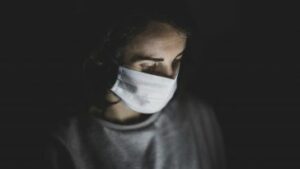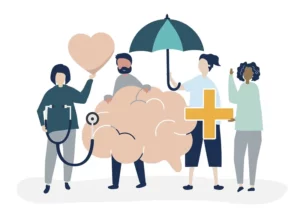Millions of people around the world suffer from (obsessive-compulsive disorder) OCD and phobias. Do you have a fear of spiders? Or maybe you can’t stand the thought of being in a closed-in space. If so, you’re not alone. In this blog post, we will discuss how phobias are interrelated with OCD and some tips on how to deal with these conditions.
Contents
What Is OCD?
Obsessive-compulsive disorder (OCD) is a mental health condition characterized by intrusive thoughts and fears (obsessions) that cause anxiety. These obsessions often lead to repetitive behaviors or rituals (compulsions). Here are some of the signs or symptoms of the obsessions and compulsions that usually accompany OCD:
- Irrational fears or worries and unwanted or intrusive thoughts.
- Rigid adherence to rules and routines.
- Difficulty in concentrating.
- Excessive hand-washing, counting, checking, or repeating certain words or phrases.
- Avoiding situations that trigger certain obsessions.
- Keep objects or things in precise order and arrangement.
- Compulsive counting and organizing.
- Excessive hand washing or cleaning.
- Repetitive prayers or performing rituals.
- Fear of germs, dirt, or contamination.
What Is Phobia?
A phobia is an intense fear of a specific object or situation. People with phobias may experience extreme anxiety and panic when exposed to the feared object or situation. Common examples of phobias include fear of heights, fear of animals like spiders, fear of flying, or fear of enclosed spaces. Symptoms of phobias are fast heart beating, rapid breathing, dry mouth, and feeling dizzy or faint. Sweating, nausea, and trembling can also occur.
Here are some of the types of phobias:
- Agoraphobia: Agoraphobia is an extreme fear of being in places or situations where it may be difficult to escape from, such as crowded places or public transportation.
- Social phobia: Social phobia is a type of anxiety disorder that involves an extreme fear of being judged, embarrassed, or humiliated in social situations.
- Claustrophobia: A fear of small, enclosed spaces. This may include elevators, airplanes, or any other space that feels confining.
- Acrophobia: It considers the fear of heights. People in this condition avoid being on the higher building or maybe balcony.
- Hemophobia: It is an intense fear of blood or needles. People with this condition may find it difficult to get medical treatments, as they are afraid of the sight of blood.
Link Between OCD and Phobias?

Check how phobias and obsessive-compulsive disorder are related to each other. People can suffer from both of them at the same time:
Similarities
- People with both phobias and OCD have similar symptoms, such as intrusive thoughts and worries, avoidance of certain situations or objects, fear of contamination, and a need for repetition and structure.
- Research has shown that people with both OCD and phobias experience similar brain activity when exposed to their feared object or situation.
- Both conditions can be controlled by some specific therapy and medication.
- These mental conditions shared some of the same risk factors which are abnormal serotonin levels or genetic predisposition.
Differences
- The main difference between phobia and OCD is the intensity of fear or anxiety. People with a phobia experience intense fear, whereas people with OCD may experience more of anxious feelings.
- People with phobias usually know that their fears are irrational but cannot control them. While people with OCD have less insight into their obsessions and compulsive behaviors.
- In OCD people usually get over-indulge in some activity to manage their anxiety or fear. On the other hand, people with a phobia are more tend to just think about escape from the situation.
- OCD attacks might be recurring within a short-term period. In phobia, people experience the same thoughts and fears over a longer period.
- People with OCD usually get some satisfaction from completing their compulsions whereas people with phobia tend to try and avoid their feared object or situation, as it causes too much anxiety.
Can OCD Cause Phobias?
Yes, it is possible for OCD to lead to phobias. OCD can cause a person to develop an intense fear of certain objects or situations due to the intrusive thoughts and worries that characterize the disorder. In research, around 7% of people with OCD are also suffering from phobias.
For example, a person may develop a fear of contamination from dirt or germs if they have obsessive-compulsive disorder. People with OCD can also experience fear of uncertainty and perform rituals or compulsive behavior in order to reduce anxiety.
What Are The Risk Factors Of OCD And Phobias?

Check these reasons that may cause a person to have OCD and phobias:
• Genetics: It is believed that certain genetic factors can increase the risk of developing phobias or OCD.
• Brain structure: People who suffer from OCD or phobias often have abnormal serotonin levels in their brains, which may affect their behavior. Certain brain injuries or abnormalities may also play a role.
• Environment: Trauma, such as physical or emotional abuse, can contribute to the development of OCD and phobias. High-stress levels in childhood or adulthood can also be a contributing factor. Research has shown that stressful events may trigger anxiety disorders, including phobias and OCD.
Treatment For Phobias And OCD?

Now, check what are the most effective treatments for phobias and OCD:
Therapy
Cognitive Behavioral Therapy is a type of therapy that helps people to identify, understand and manage their fear or anxiety. It can also help them to modify negative thoughts and behaviors related to the condition. This therapy tracks and counters the intrusive thoughts are seen in OCD and phobias.
Exposure and Response Prevention Therapy is a type of therapy that involves systematically exposing a person to fear or anxiety. It helps them to process the fear and to learn how to manage it. ERP is often used for treating OCD, but can also be used for phobias as well.
Medication
Certain medications, such as antidepressants and antipsychotics, can help to reduce the symptoms of OCD or phobias. However, these should always be prescribed by a doctor and taken under their supervision.
Self-Help Strategy
There are also many self-help strategies that people can use to manage their OCD or phobia. These include relaxation techniques such as deep breathing, mindfulness, and visualization. Other strategies include positive affirmations, challenging negative thoughts, and keeping a worry journal.
Group therapy and support groups can also be beneficial for people struggling with OCD or phobias, as they provide a safe space to talk about their experiences with others who understand.
Conclusion
OCD and phobias can be distressing conditions, but they can be effectively managed with the right treatment. Cognitive Behavioral Therapy and Exposure and Response Prevention Therapy are two of the most effective therapies for treating these conditions. Additionally, medications can help to reduce symptoms, while self-help strategies such as relaxation techniques and mindfulness can also be helpful.
Take care, and don’t forget that you are not alone! OCD is a mental health disorder characterized by obsessions and compulsions. If you have any queries regarding OCD treatment, ERP therapy experienced therapists at OCDMantra can help: Book a trial OCD therapy session


